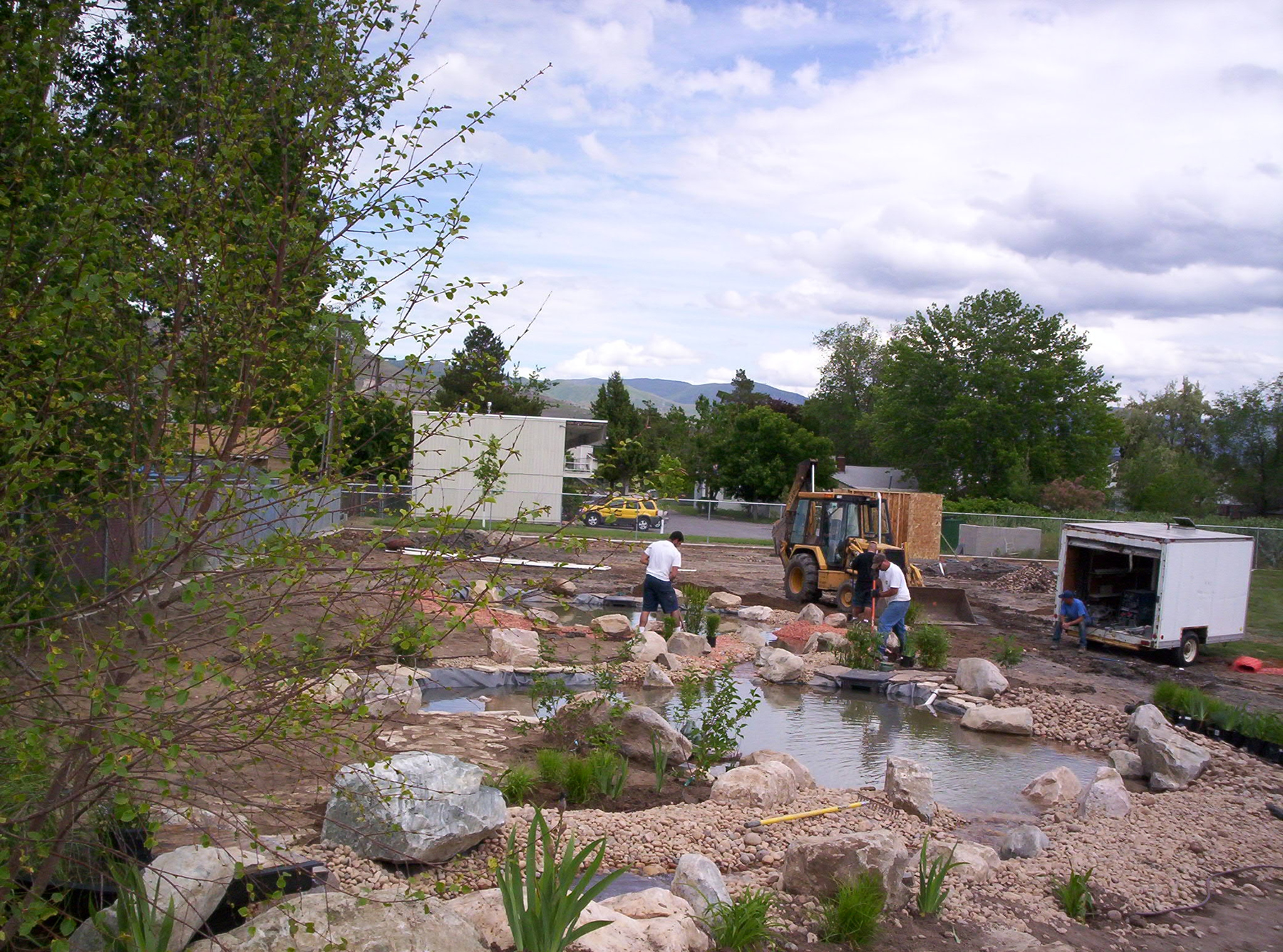
Nov. 13, 2006 – A threatened Utah native fish, the least chub, will be introduced into recently constructed wetlands at Salt Lake City’s Escalante Elementary School as part of an unusual learning opportunity organized by a University of Utah program.
News media are invited to cover introduction of the fish to the school’s student-made wetland at 1 p.m. Tuesday, Nov. 14. The wetland is in the northeast quadrant of the schoolyard. Escalante Elementary is located at 1810 W. 900 North in Salt Lake City.
This conservation and education opportunity is part of a cooperative effort by teachers from Escalante Elementary and scientists from Utah’s Division of Wildlife Resources and the University of Utah’s Project WEST (Water, the Environment, Science and Teaching).
The least chub is a small fish native to the northwestern Utah. Its numbers have declined severely, largely due to the introduction of nonnative fish species and loss of habitat. It currently lives in a few springs and streams in western Utah.
This project will provide students with a rare opportunity to become directly involved in the conservation of a native Utah fish, and improve the quality of their school wetland while applying scientific concepts.
The wetland was constructed in 2005 as the result of a $100,000 Ford Motor Company-National Geographic “Radical Renovation” grant to improve school grounds. The water comes from a natural spring, which had been flooding the school’s playing fields every year. Now, spring water is diverted to two new ponds, which are connected by a small stream. A garden also was built and filled with many Utah native plants.
Ever since completion in June 2005, the wetland and native garden have served as an outdoor science classroom and a source of pride for Escalante students. Instead of reading about wetlands, students observe and experiment in their own schoolyard.
Students have designed and carried out projects comparing water quality of their wetland with the Jordan River, monitoring pollution indicators, identifying larger insect species and identifying adaptations for aquatic life.
Adding a native fish species to the wetland will help balance the wetland ecosystem, and give students a chance to help conserve a threatened Utah species.
Project WEST is part of a National Science Foundation program to promote discovery-based science in grades 4 through 9 in public schools. Graduate student “fellows” from the University of Utah’s departments of geology and geophysics, biology and meteorology work with public school teachers to develop hands-on lesson plans, conduct experiments, and lead field trips that immerse students in the scientific process.
Project WEST’s ultimate goal is to instill in students a sense of wonder and passion about nature that will inspire them to choose career paths in the science, technology, engineering and mathematics. WEST is in a partnership with the University of Utah, the university’s Utah Museum of Natural History and the Salt Lake City School District to enhance inquiry-based science teaching in grades 4-9.
A Utah Division of Wildlife Resources web page on the least chub is at:
http://dwrcdc.nr.utah.gov/rsgis2/search/Display.asp?FlNm=iotiphle
The University of Utah Project WEST website is at:
http://www.earth.utah.edu/west
